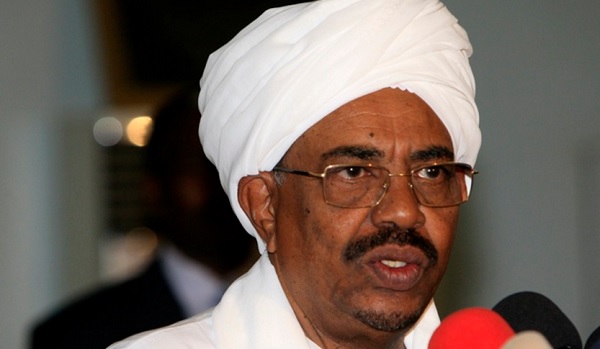
The Hague, Netherlands | AFP | War crimes judges will Thursday hand down an eagerly anticipated ruling on whether South Africa flouted international law by failing to arrest Sudanese President Omar al-Bashir in 2015, wanted for genocide in Darfur.
The landmark decision will serve as a blueprint for future cooperation between countries and the International Criminal Court, experts say.
It will also highlight that the tribunal based in The Hague can only function with the support of its member states and the backing of the UN Security Council.
“The ruling is… fundamental for future compliance,” said Carsten Stahn, international criminal law professor at Leiden University.
A decision against South Africa “would send an important message that states cannot negotiate (their) legal obligations with the court,” he told AFP.
– Bitter dispute –
Despite two international arrest warrants issued in 2009 and 2010, Bashir remains at large and in office amid a raging conflict in the western Sudanese region of Darfur.
The long-time ruler has denied the ICC’s charges, including three accusations of genocide as well as war crimes and crimes against humanity.
The deadly conflict erupted in 2003 when ethnic minority groups took up arms against Bashir’s Arab-dominated government, which launched a brutal counter-insurgency.
The UN Security Council asked the ICC in 2005 to probe the crimes in Darfur, where at least 300,000 people have been killed and 2.5 million displaced, according to UN figures.
Bashir continues to travel and Khartoum announced Monday he will visit Moscow for the first time in August following an invitation by Russian President Vladimir Putin.
Russia formally withdrew its signature in November from the ICC’s founding Rome Statute, a treaty Moscow has never ratified.
Pretoria and the ICC became embroiled in a bitter tangle in 2015 when Bashir attended an African Union summit in Johannesburg.
Despite the arrest warrants, Bashir then flew home unhindered. It remains unclear whether he did so with the tacit approval of South African President Jacob Zuma’s government.
At a landmark hearing in April, Pretoria disputed accusations by the ICC’s prosecutors that it had broken its obligations to the very same tribunal it helped found in 2002.
Angry prosecutors stated Pretoria “had the ability to arrest and surrender Mr al-Bashir and it chose not to do so.”
Pretoria’s lawyers argued there “was no duty under international law on South Africa to arrest” Bashir, saying he enjoyed diplomatic immunity.
 The Independent Uganda: You get the Truth we Pay the Price
The Independent Uganda: You get the Truth we Pay the Price






An outstanding share! I have just forwarded this onto a co-worker who was conducting a
little homework on this. And he in fact bought
me breakfast due to the fact that I discovered it for
him… lol. So allow me to reword this…. Thanks for the meal!!
But yeah, thanx for spending time to discuss this
issue here on your site.
It’s amazing in support of me to have a web page, which is useful in support
of my knowledge. thanks admin
What i do not realize is actually how you are not really
a lot more well-appreciated than you might be now. You are very intelligent.
You recognize thus considerably in relation to this matter, produced
me personally imagine it from so many varied angles.
Its like women and men don’t seem to be interested except it’s something to accomplish with Woman gaga!
Your individual stuffs outstanding. At all times maintain it up!